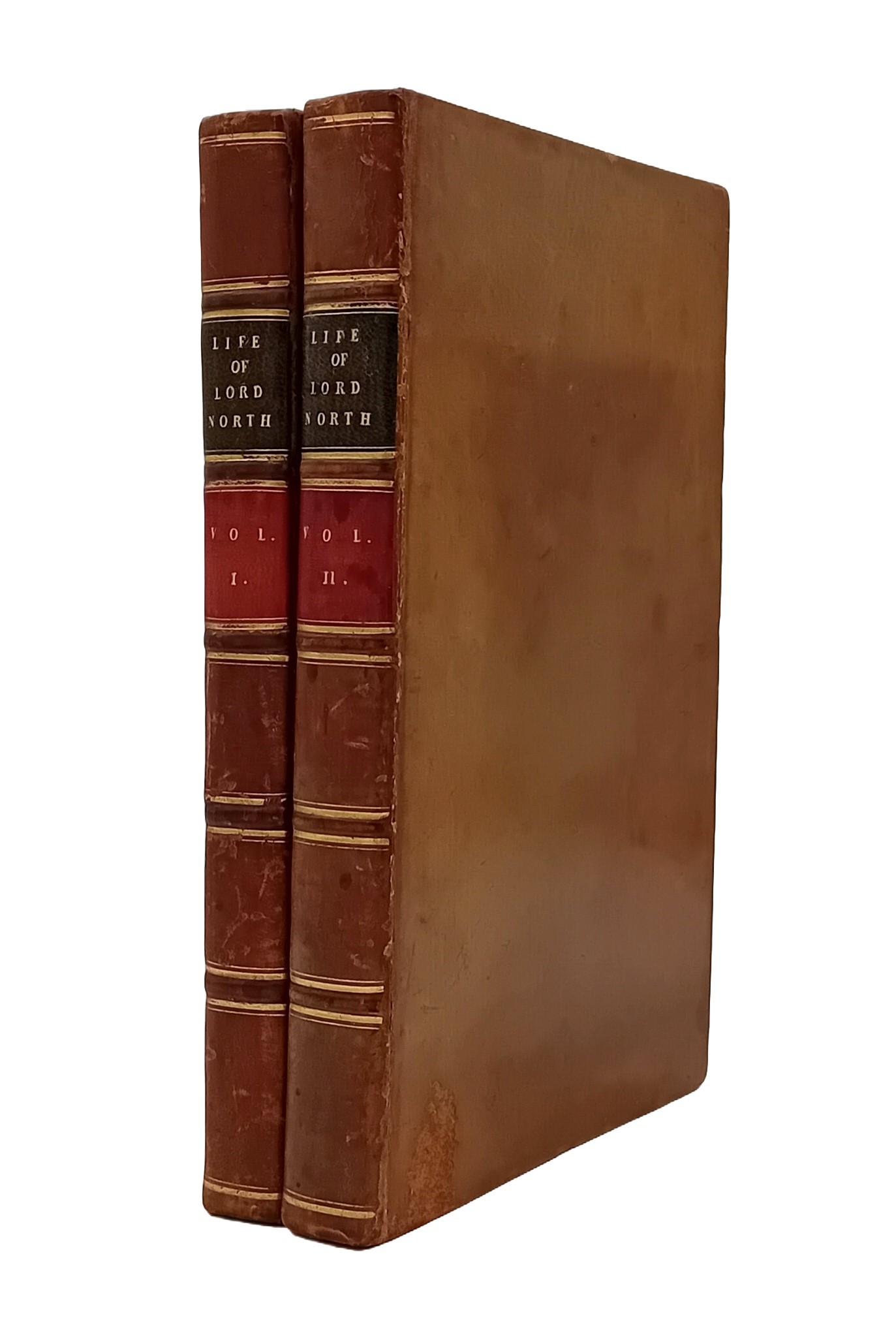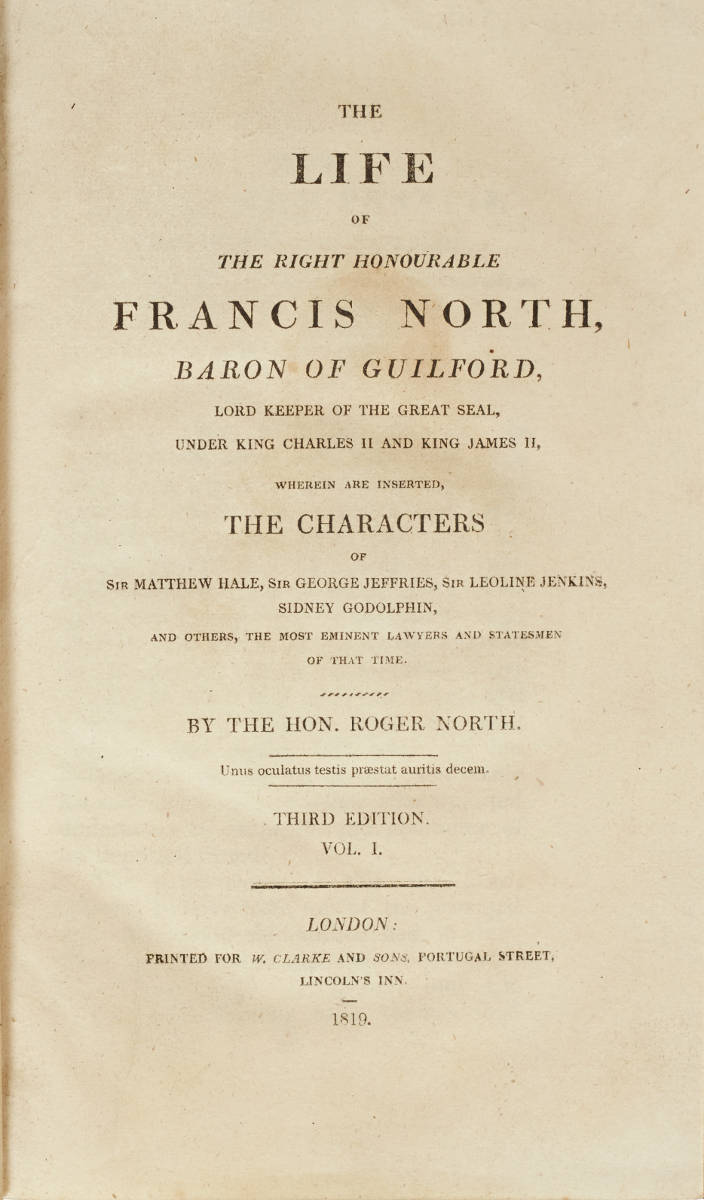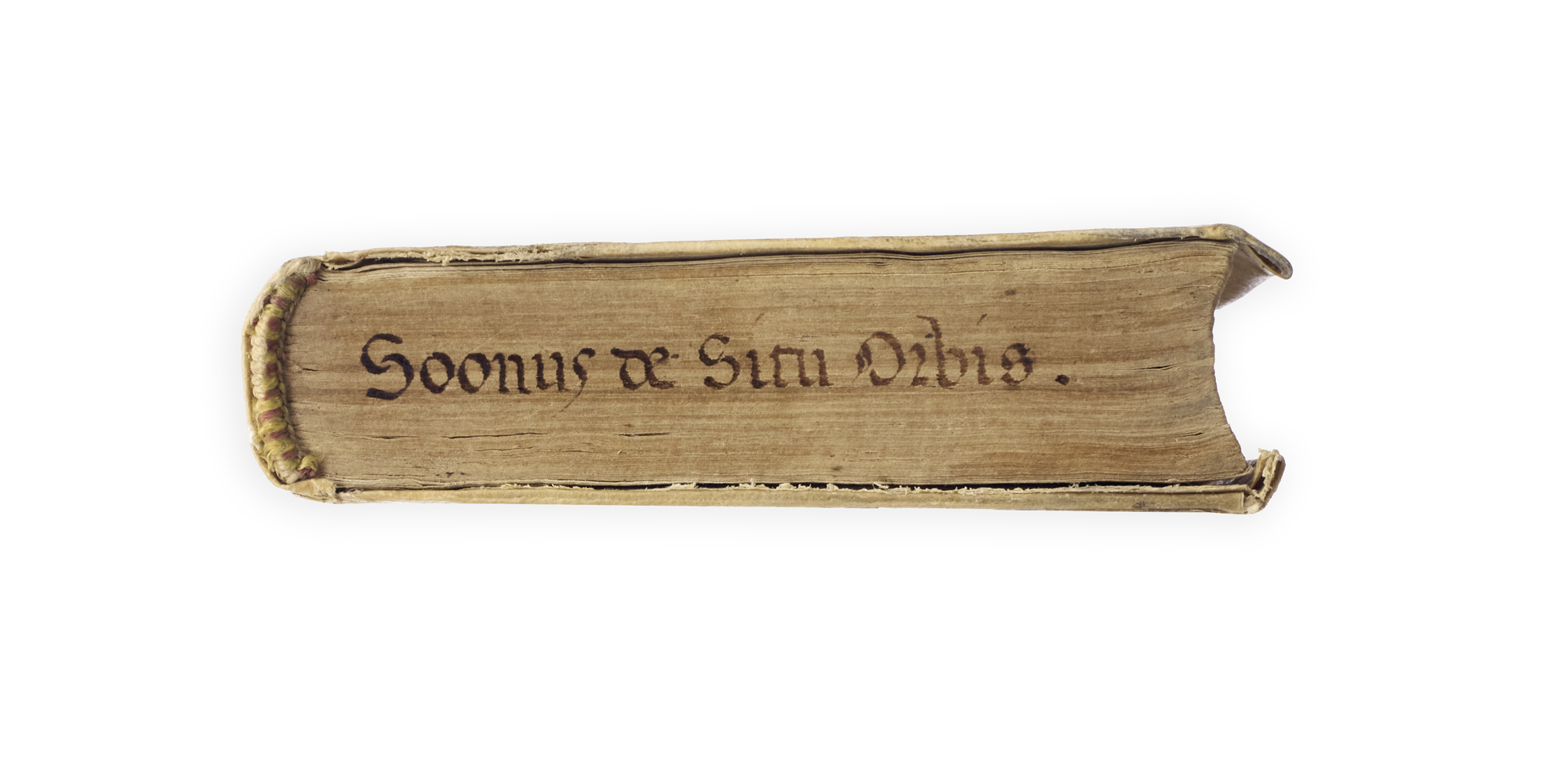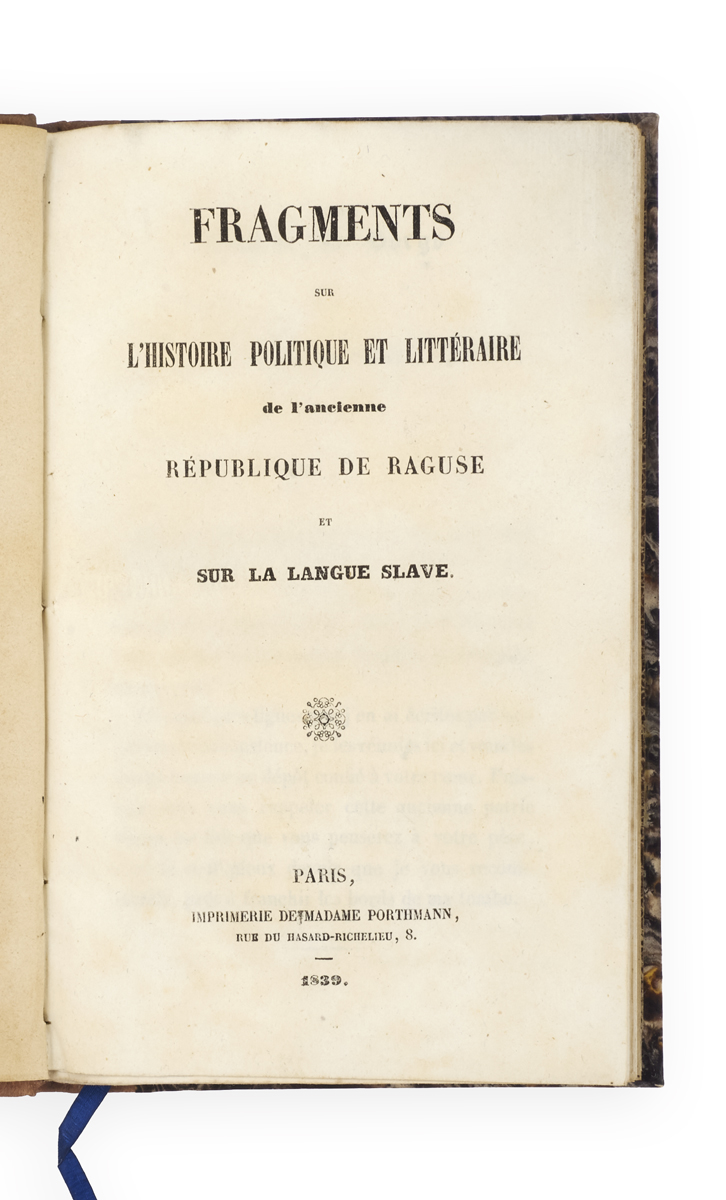

A BIOGRAPHY OF THE LORD KEEPER OF THE GREAT SEAL, ‘A MOST KNOWING, LEARNED, INGENIOUS GENT’, FRO
NORTH, Roger.
The Life of the Right Honourable Francis North, Baron of Guilford, Lord Keeper of the Great Seal, under King Charles II and King James II, wherein are Inserted the Characters of Sir Matthew Hale, Sir George Jeffries, Sir Leoline Jenkins, Sidney Godolphin, and Others, the Most Eminent Lawyers and Statesmen of that Time ... Third Edition.
London, Davidson for W. Clarke and Sons, 1819.
2 volumes, 8vo (218 x 131mm), pp. I: xvi, 317, [1 (publisher’s advertisement)]; II: [2 (title, verso blank)], 347, [1 (blank)], [20 (index)]; engraved portrait frontispieces of Lord Keeper Guildford and Sir George Jeffries; occasional light spotting, bound without final l. I, X8 [?but possibly the inset singleton title to vol. II]; contemporary full English calf, the flat spines gilt in compartments, contrasting green and red morocco lettering-pieces in two, gilt board-edges, brown-speckled edges; slightly rubbed and scuffed causing small surface losses, some cracking on joints, nonetheless a very fresh, attractive set; provenance: John Scott, 1st Earl of Eldon (1751-1838, autograph ownership signatures ‘Eldon’ on pastedowns and armorial bookplates on upper pastedowns).

Added to your basket:
The Life of the Right Honourable Francis North, Baron of Guilford, Lord Keeper of the Great Seal, under King Charles II and King James II, wherein are Inserted the Characters of Sir Matthew Hale, Sir George Jeffries, Sir Leoline Jenkins, Sidney Godolphin, and Others, the Most Eminent Lawyers and Statesmen of that Time ... Third Edition.
Third edition. The lawyer, politician and writer Francis North, first Baron Guildford (1637-1685) was educated at St John’s College, Cambridge and the Middle Temple. Application, ability and fortunate associations all contributed to his rapid advance in his profession and in 1668 he was appointed King’s Counsel by Charles II (on the advice of the Duke of York), and then Solicitor-General in 1671. He was knighted the same year, and his interests began to turn towards politics: in 1673 he was elected Member of Parliament for King’s Lynn and became Attorney-General in the same year, and then Chief Justice of Common Pleas in 1675; this was followed by his appointment as Lord Keeper of the Great Seal in 1682, which gave him authority over the chancery, its court, and the passing of all royal charters and commissions. As a Privy Councillor and Lord Keeper who was aligned to the anti-Catholic interests of government, ‘North had become the indispensable legal mind behind the so-called “tory reaction” from 1681 to 1685. Under his leadership commissions of the peace were remodelled and corporations were rechartered by the score to ensure that local government rested in the hands of those the crown could trust’ (ODNB). However, the death of Charles II and the coronation of the Catholic James II in 1685 saw North’s star wane, and rumours circulated of attempts to replace him as Lord Keeper with Sir George Jeffreys – however, any such plots were pre-empted by North’s death on 5 September 1685.
The Life of the Right Honourable Francis North was written by his younger brother, the lawyer and politician Roger North (1653-1734) and first published posthumously in 1742; a second edition followed in 1808 and this third edition in 1819. The ODNB comments that, Francis North ‘was fortunate among the many lawyers prominently engaged in the partisan conflict of the last years of Charles II in having a thorough and sympathetic biographer: his brother Roger. Roger's long and loving account, constructed out of his extensive transcripts of North's private papers, is balanced by the less favourable views offered by Gilbert Burnet and others [...] to his brother, North was a prudent, quiet man, always above the political contest in which self-interest deformed the actions of others [...] North's brother and others testify to the fact that there was more to the lord keeper than law and politics. He was a serious musician, having begun his study of the bass viol at Cambridge; he continued to play and to compose throughout his life. Evelyn called him “a most knowing, learned, ingenious gent., and besides an excellent person, of an ingenuous sweet disposition, very skillful in music, painting, the new philosophy and politer studies”’.
This set was formerly in the library of the distinguished lawyer and politician, John Scott, Earl of Eldon, who was educated at University College, Oxford and the Middle Temple, and appointed King’s Counsel in 1783. Like Francis North, Eldon was a Member of Parliament and a Privy Counsellor, and held the offices of Solicitor-General (1788-1793) and Attorney-General (1793-1799), before being appointed Lord Chancellor in 1801, holding the office (apart from a brief interval of thirteen months) until 1827 – the longest tenure to that date, which saw him enjoy the favour of both King George III and King George IV. Noted for the scrupulousness of his judgments, Eldon ‘was not only a prominent political figure for over forty years but also the greatest lawyer of his time’ (ODNB).
Cf. Lowndes p. 1703 (1st ed.)

